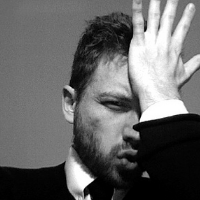
Guy Kawasaki has an interesting formula to value a start-up: “For every full-time engineer, add $500 000. For every full-time MBA, subtract $250 000.” The statement raises an interesting point, do the highly analytical skills offered through an MBA actually hinder the creative process needed for entrepreneurship?
And an even broader question: does reading about something make you worse at actually doing it?
I can’t say how having an MBA impacts your entrepreneurial ability. I believe it would depend more on your goals and personality than your education. But I think the broader question is worth a good look. Analysis and action are two completely different things, and I think there are circumstances where learning too much can actually hurt you.
From Boxless Thinking to Doctrine
When you have few opinions about a subject, you also don’t have any wrong opinions. The fresh perspective of a beginner does have an advantage: it doesn’t come with the baggage of bad advice.
Rob Warren, a professor I have for an entrepreneurship class, made an off-hand comment that our studying probably hinders our ability to be great entrepreneurs. “You come in here with an open perspective, and we push you into a narrower set of thinking.”
Some areas of life, theoretical knowledge is extremely useful. I’d rather trust an electrical engineer’s description of how a circuit board works than my own assumptions based on using electricity. These tend to be areas of life that are highly general, and where obtaining a large enough set of experiences is difficult. Science usually fits both of these criteria.
But there are some areas where experience trumps theories. I’d rather listen to my own experiences running a business, than an MBA student who has never worked in my industry. This is because what works for me might not work for you, randomness is everywhere and ideas are often too complicated to put into a big theory.
In the latter case, spending a lot of time learning theories, without practical experience can be deadly. Why? Because for every nine or ten correct ideas you learn, you pick up one or two false ones. They may not be false for everyone, but in your case they are dead wrong.
At first glance, this may not seem like a problem. One error for every several pieces of good advice isn’t that bad. However, any programmer will tell you that if you introduce one bug for every 10 lines of code, you shouldn’t be allowed near a computer. It’s far harder to unlearn a wrong idea than it is to learn one.
One Book per One Hundred Hours of Practice
I think there is a way you can prevent this: always have your experience match your reading. That is, you should have roughly one hundred hours of real experience for every book you read on the topic.
This is a completely made-up rule, but I think the numbers are in the right ballpark.
Keeping theory balanced with experience keeps you from introducing buggy ideas into your brain. I do enough writing that when I see a bad idea about writing style, I can safely ignore it. Even if I didn’t ignore it, the idea would quickly reveal flaws when I started practicing it in my writing. I’m far from the best writer, but I do get a lot of practice.
What does this rule apply to? Anything that fits the second category of skill I mentioned earlier: where experience trumps theory. The more specific, subjective, random and complex the topic, the less useful theories are. Here are a few that would make my list:
- Writing
- Entrepreneurship
- Design
- Music
- Dating
- Self-Improvement
- Leadership
- Productivity
There are also even more areas that fall in the gray zone between science and intuition. Exercising has some simple and highly general rules that should be followed. However, building the discipline to exercise regularly and enjoy it is highly specific and needs experience. Most of life is a bit of both.
Should You Read Less?
Unless you spend 15 hours of your day locked in your room reading, I’d say the answer is no. Most people don’t read enough, not too much. Change what you read, not the volume. Even for creative fields, books can be useful, as long as they are matched with some real-world insights.
If you read a lot about a topic, but aren’t spending at least 3x that much time actually practicing it, you should stop reading that topic. If you’re spending three hours a day reading dating advice columns on the internet, you should be spending at least nine hours a day meeting people to justify that. If you’re library is filled with self-help books, but you haven’t written down any goals and invested several hours a week to accomplish them, you need to stop buying more of those books.
Reading also can make you feel like you’re making improvements. However, unless it’s applied intelligently, it’s just procrastinating. Nothing is stopping you from meeting people, starting a business, writing a short story, building software, networking or setting goals, don’t let books and blogs get in the way.


 I'm a Wall Street Journal bestselling author, podcast host, computer programmer and an avid reader. Since 2006, I've published weekly essays on this website to help people like you learn and think better. My work has been featured in The New York Times, BBC, TEDx, Pocket, Business Insider and more. I don't promise I have all the answers, just a place to start.
I'm a Wall Street Journal bestselling author, podcast host, computer programmer and an avid reader. Since 2006, I've published weekly essays on this website to help people like you learn and think better. My work has been featured in The New York Times, BBC, TEDx, Pocket, Business Insider and more. I don't promise I have all the answers, just a place to start.